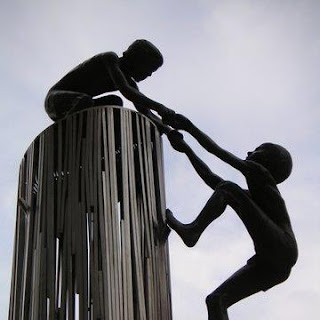Last week I was up in Portland recording a podcast on Late Night Library with poet Dorianne Laux. Late Night Library is the brainchild of University of Oregon MFA graduates Paul Martone (fiction) and Erin Hoover (poetry). Each month two established writers (one poet and one fiction writer) discuss the work of a debut author. Dorianne and I were discussing the poetry collection Beautiful in the Mouth by Keetje Kuipers, another graduate of the UO MFA program. (The project isn’t, by the way, all about the University of Oregon, this was simply happenstance.)
As a fiction writer I was initially nervous about discussing poetry in a public forum, but Dorianne—friend, free spirit, and poet extraordinaire—empowered me. Our discussion was not a review of the book so much as an exploration in and around it. I loved that Paul (in Portland, OR) and Erin (in Brooklyn, NY) were organized and professional in arranging and preparing us for the recording session. They have been very entrepreneurial in putting this website and podcast together, and in getting publicity and support from a variety of literary corners, including Tin House Magazine, Poets and Writers, Oregon State University’s MFA program, etc.
Mostly what delights and impresses me is Paul and Erin’s commitment to helping out other writers. They themselves are still at work on their own first books and could be hoarding time for themselves, and yet they have been generously devoting time and energy to creating an inclusive community of writers that crosses genre lines and takes the work of all writers seriously, those starting out as well as those who are farther down the path.
In an individualistic culture such as ours such generous and unsolicited support for debut writers is a rare offering. It is not uncommon for writers to disparage one another, engage in virulent (if understated) turf warfare—after all, the subliminal thinking goes, the rewards are scarce and another writer’s success might steal from my own. I have seen writing teachers behaving badly when threatened by talented students; I have seen the ambivalence and cattiness that can result among tribes of writers when one of their own hits it big.
It is undeniable that fellow-writer-envy is an occasional pitfall of the profession. But the best antidote to envy is to identify ourselves with other writers instead of in opposition to them. We should be helping each other in every way we know how. In part because it’s good karma. If you make a habit of supporting other writers (buy their books, attend their readings, acknowledge them when you like their work, connect them with others, write recommendations when appropriate, etc.) it is far more likely that other writers will be around to assist you when you need it. And there are times when we all need help. While this would seem to be common sense, it is common sense that doesn’t always manifest itself in behavior.
We live in a culture that doesn’t particularly value writing (or any of the arts) unless the work makes boatloads of money. Only a small percentage of writers (and other artists) bring in impressive wages from their work. The large majority of us stumble along, sustained mostly by passion. If we are not supporting one another, who else will?
And, if you still need convincing, research shows that helping others releases endorphins and improves both physical and mental health.
Hooray for people like Erin and Paul who are setting a stellar example for the rest of us writers.

Add Comment